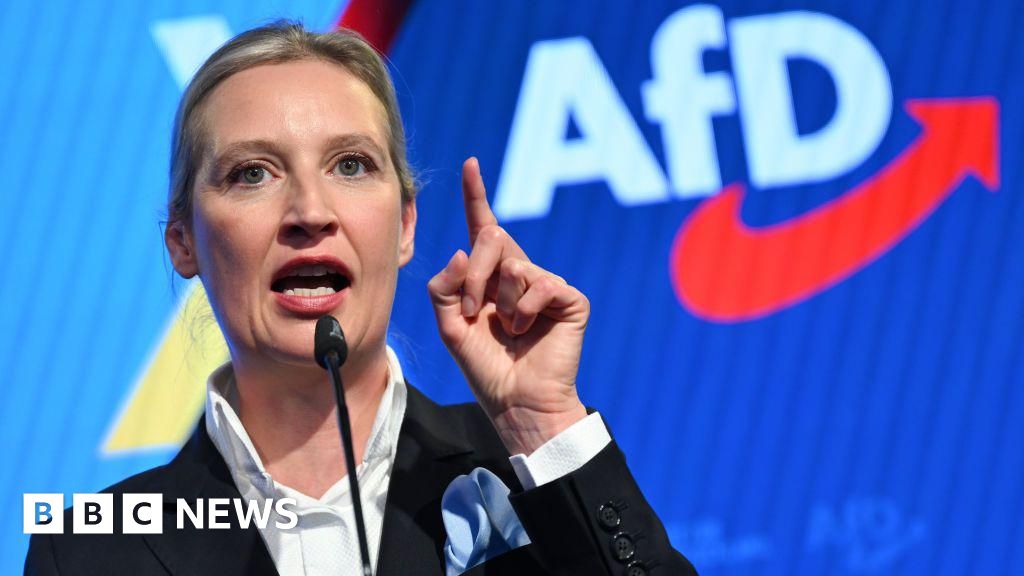 |
|
The recent German election has delivered a seismic shift in the country's political landscape, revealing deep societal divisions and a rejection of established political norms. Friedrich Merz's conservatives may have won, but the real story lies in the rise of the Alternative for Germany (AfD), the collapse of the ruling coalition, and the unexpected resurgence of the Left party through innovative social media strategies. The election results paint a picture of a nation grappling with complex issues of immigration, economic anxieties, and a growing disillusionment with traditional political institutions. The AfD's remarkable growth, doubling its support in just four years to secure over 20% of the vote, is particularly noteworthy. This surge cannot be dismissed as a fringe phenomenon; it represents a significant segment of the German population whose concerns are not being adequately addressed by the mainstream parties. While the AfD's strongholds remain in the eastern states, where economic disparities and historical grievances persist, its expansion into western Germany underscores a broader trend of political realignment. The normalization of the AfD within certain segments of society, as evidenced by the statement from the young man in Duisburg, highlights the challenges of combating extremist ideologies. The party's ability to tap into anxieties surrounding immigration, particularly in the wake of recent attacks allegedly committed by immigrants, has fueled its rise. The AfD's controversial policy of "remigration," which advocates for the deportation of migrants who have committed crimes and, in some interpretations, the mass deportation of migrants and their descendants, has further polarized the political discourse. While Germany's main parties maintain a "firewall" against cooperating with the AfD due to its extremist tendencies, the party's growing support base presents a significant challenge to the political establishment. The designation of the AfD as a suspected far-right extremist organization by a German court, and its classification as right-wing extremist by domestic intelligence in several eastern states, underscores the party's problematic ideology. The fact that a leading AfD figure, Björn Höcke, has been convicted of using a banned Nazi slogan further reinforces concerns about the party's historical associations and its potential to incite hatred and violence. Despite these controversies, the AfD's message resonates with a segment of the population that feels ignored and disenfranchised by the political establishment.
The high voter turnout of 82.5%, the highest in 40 years, indicates a deeply engaged electorate that recognizes the pivotal moment facing the country. This heightened participation suggests a widespread desire for change and a willingness to exercise democratic rights. The numerous televised debates during the campaign underscore the public's keen interest in the issues at stake and the candidates' positions. However, the collapse of the three-party coalition led by outgoing Chancellor Olaf Scholz highlights the fragility of Germany's political system. The internal divisions within the coalition, particularly over economic policy and debt rules, ultimately proved insurmountable. The decision of all three leaders of the coalition parties to step down from frontline politics within 24 hours of the election results underscores the extent of the political fallout. Christian Lindner, the leader of the economic liberals, the FDP, faced a particularly harsh defeat, failing to secure any MPs and ending his 25-year political career. His refusal to compromise on debt rules is widely seen as the catalyst for the government's downfall and his party's subsequent electoral failure. While Scholz will remain as chancellor until a new government is formed, his departure from frontline politics marks the end of an era. The decision of Greens Vice-Chancellor Robert Habeck to also step down reflects the disappointing performance of his party in the election. The upheaval in the political leadership creates a power vacuum and raises questions about the future direction of German politics. The process of forming a new government is likely to be complex and protracted, requiring difficult negotiations and compromises among the various parties. The outcome will have significant implications for Germany's domestic and foreign policies.
Amidst the turmoil, the Left party's unexpected resurgence provides a glimmer of hope for progressive forces. After facing near-extinction following the departure of Sahra Wagenknecht and the formation of her own populist party, the Left party managed to stage a remarkable comeback through a well-executed social media campaign. Heidi Reichinnek, the party's co-chair, became a viral sensation after passionately defending the firewall against the AfD. Her TikTok videos attracted millions of views and helped to mobilize young voters. The Left party's ability to connect with younger generations through social media platforms highlights the importance of adapting to new forms of political communication. The party's focus on social justice issues, such as income inequality and affordable housing, resonated with voters who feel left behind by the economic system. The contrast between the Left party's success on TikTok and the AfD's reliance on more traditional media channels underscores the changing dynamics of political campaigning. The election results demonstrate that young voters are not a monolithic bloc and that their political preferences are diverse. While some young people may be drawn to the AfD's populist message, others are attracted to the Left party's progressive agenda. The future of German politics will depend on the ability of the various parties to engage with young voters and address their concerns. The German election serves as a cautionary tale about the dangers of political polarization and the importance of addressing the root causes of societal discontent. The rise of the AfD, the collapse of the ruling coalition, and the resurgence of the Left party all point to a need for a more inclusive and responsive political system. Germany's political leaders must find ways to bridge the divides within society and to create a more equitable and sustainable future for all citizens.
